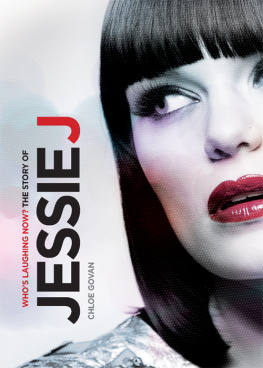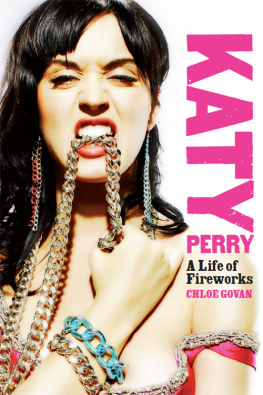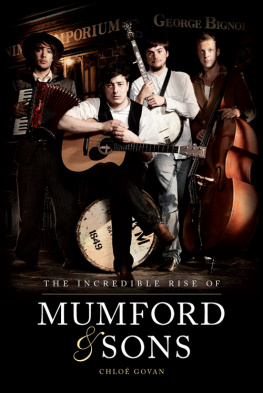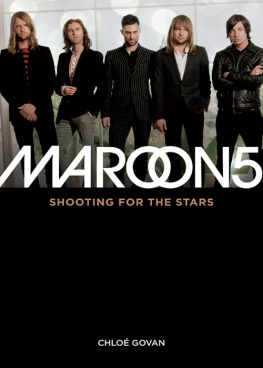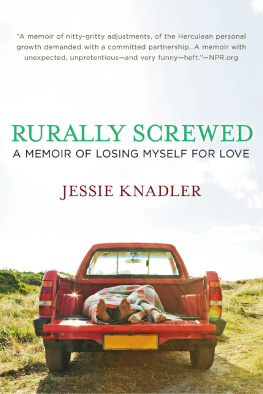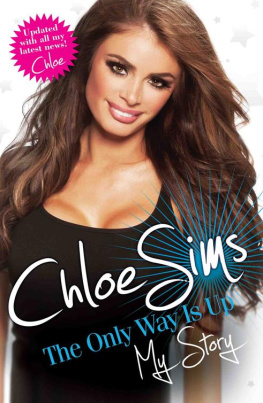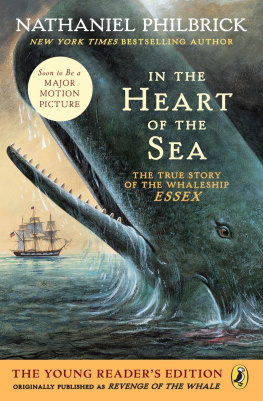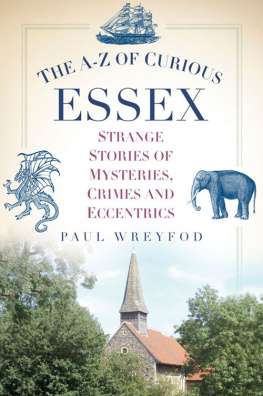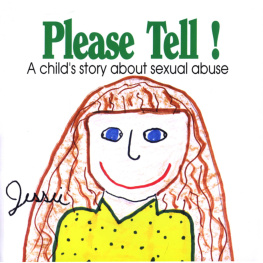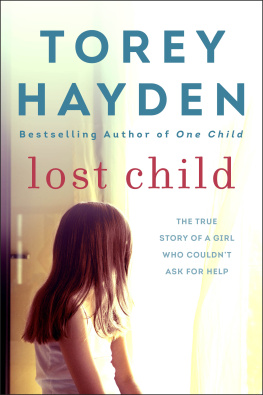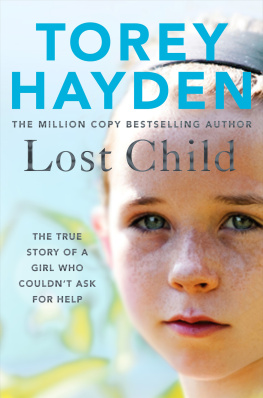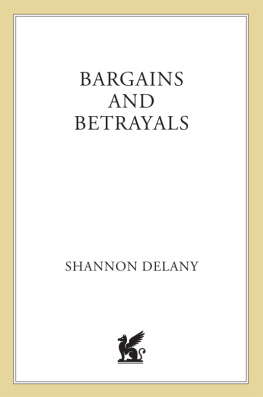The Author hereby asserts his/her right to be identified as the author of this work in accordance with Sections 77 to 78 of the Copyright, Designs and Patents Act 1988.
All rights reserved. No part of this book may be reproduced in any form or by any electronic or mechanical means, including information storage and retrieval systems, without permission in writing from the publisher, except by a reviewer who may quote brief passages.
Every effort has been made to trace the copyright holders of the photographs in this book, but one or two were unreachable. We would be grateful if the photographers concerned would contact us.
A catalogue record of this book is available from the British Library.
For all your musical needs including instruments, sheet music and accessories, visit www.musicroom.com
For on-demand sheet music straight to your home printer, visit www.sheetmusicdirect.com
Dedication
In memory of my much loved grandmother Maggie Armitage who suffered a stroke, like Jessie, and passed away just after the writing of this book.
Contents
Acknowledgements
A special thanks goes to interviewees Kerry Louise Barnaby, Natalie Green, Kelly Kim Kranstoun, Aisha Ludmilla, Myke Rayon, Shae, Dawn Wenn-Kober and all the additional anonymous names who agreed to be interviewed.
Chapter 1
The Heartache That Wouldnt Go Away
Stomp, stomp, Ive arrived!
Jessie J
W hite stilettos. Criminally short mini skirts. Brutal catfights that leave bloodstains on designer handbags, ripped hair extensions strewn on the street and fearsomely long fake nails torn right off. Drunken brawls that see policemen blinking nervously and wondering whether or not to intervene. Furious girls on the warpath cutting figures more formidable than the Kray Twins. Social and sexual butterflies taking to the streets in perilously high heels and sporting tans a deeper shade of orange than an Easyjet flight to Ibiza. Gaggles of drunken girls giggling raucously before falling head first out of nightclubs and descending haplessly into pools of their own vomit. Where was the scene of the crime? The location, of course, was Essex and the birth place of Jessie J.
Born on March 27, 1988, and christened Jessica Ellen Cornish, the singer to be could little have known the stereotypes her postcode would have in store for her. Her home borough of Redbridge was a no mans land between the insalubrious urban decay of gritty, edgy East London and the superficial, larger than life glamour of central Essex, complete with its self-tanning parlours, spas, nail salons and all you can drink nightclubs.
Aside from the after hours parties and polluted, allegedly sewage-infested beaches, Essex was best known for its women, who much to their indignation had gained the reputation from hell. This county was home to every stereotype that Amy Winehouse had sneeringly paid tribute to on her single Fuck Me Pumps. The caustic song had poked fun at girls who displayed a combination of debauchery and stupidity an opinion of Essex girls shared by many others.
According to long-standing jokes, these girls sported bra sizes bigger than their brain sizes and Essex girls with half a brain were cruelly dubbed gifted. They werent known for their sexual restraint either, allegedly wearing pants for no other reason than to keep their ankles warm.
Time magazine poked fun at the stereotype too, claiming: In the typology of the British, there is a special place reserved for the Essex girl, a lady from Londons eastern suburbs who dresses in white strappy sandals and sun-tan oil, streaks her hair blonde, has a command of Spanish that runs only to the word Ibiza and perfects an air of tarty prettiness.
One indignant blogger lost his rag at hearing one Essex joke too many, stepping in to defend: I am an Essex lad and frankly all of you who are choosing to tar all Essex girls with the same brush are clueless idiots and, by the looks of it, thats most of you!
Ouch. Yet as much as they might protest their innocence, the die for postcode stereotyping had already been cast. The term Essex girl had been born when Jessie was just a year old and not yet out of nappies. It all began just like so many other stories about Essex with an ill-fated sexual encounter. Two girls stepped forward to the tabloids in 1989 to loudly and proudly proclaim that theyd both slept with all five members of a famous boy band on the same night. The phrase No sex please, were British clearly did not apply to Essex.
An intentionally provocative accompanying photo shoot appearing alongside their tabloid confessions saw the pair wearing barely there dresses and, of course, white stilettos, which became the infamous trademark of the county. The shoes also became a trademark for debauchery and some might say the two were one and the same.
The pair paved the way for women high on beauty but low on scruples who realised that their looks were a form of currency to be exploited and traded in for such goodies as wild sex with attractive partners, bagging a rich husband or getting their own way in various regards. It was an extension of the Daddys girl persona but extended to the wider world. Some called them smart, while others branded them devoid of morals. Either way, their liberation was a bitter pill to swallow for the majority of a then civilised, orderly and respectable British society.
The eighties had been a time of sexual restraint, prompted by the arrival of AIDS in the Western world at the start of the decade. Not only was casual sex risky, but condoms were discouraged, implying that the only safe options were marriage and abstinence. While religious puritans still objected to abortion in Jessies ancestral homeland of Ireland, back then it was forbidden altogether and birth control was frowned upon. Women were instead expected to find a husband for life.
For example, in 1987, adverts for birth control were banned by the Independent Broadcasting Authority, who insisted these could influence young people into thinking premarital sex was normal. Durex almost went bankrupt because mid-market tabloids such as the Daily Mail banned their adverts from what it considered to be a respectable family newspaper. In one case, a photo depicting a pair of intertwined feet under bed covers alongside the phrase I hope hes being careful was censored lest it outrage readers morals. In previous years, even the Yellow Pages had been forbidden from advertising products under the illicit category Contraception.
Against a backdrop of the ultra-conservative eighties, when some women were branded sluts just for dropping their pants before their wedding day, this spelled trouble for the freedom-loving Essex girls. It was an era when men were desperate to secure chastity in their wives, one where the stereotype dividing Madonnas from whores really applied. In fact, one 1980 survey revealed that half of the supposedly liberated male respondents all under 25 wanted to marry virgins. Im not [a virgin] but I would like [my wife] to be, one explained. I just would not like the idea of a second-hand woman.
Add a couple of brash, lascivious, shamelessly lustful, unmarried good-time girls from Essex with a penchant for orgies into the equation and the problem begins to come into focus. From that moment, the reputation that linked Essex with bimbos and sex-crazed nymphets was set in stone. As the old saying goes, credibility was like virginity and, in both cases, it could only be lost once.

